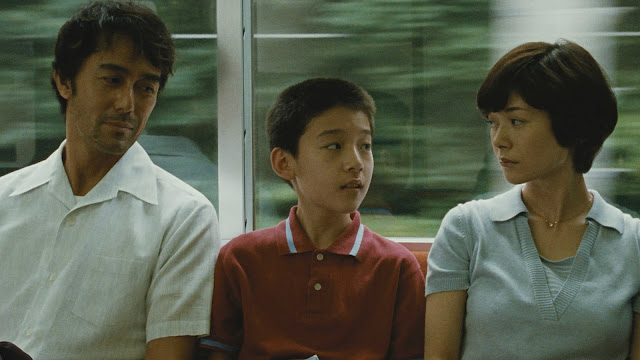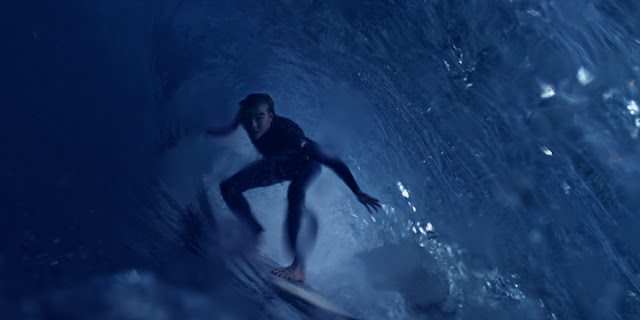After the Storm - Dir. Hirokazu Kore-eda
If someone were to ask me what Hirokazu Kore-eda’s latest film is about, I could accurately, and most unhelpfully, say ‘Life’, which could make the film sound morosely ponderous when it isn’t in any way.
Whilst the characters occasionally flirt with philosophical notions of what the meaning of life is, much to their own amusement and amazement, Kore-eda is much more interested in letting his characters participate in the life they’ve been dealt and to navigate a way through the joys and disappointments along the way.
Navigating a particularly precarious stretch of his life is Ryota (Hiroshi Abe), a one-time novelist struggling to build on the youthful promise of that first novel. He’s floundering somewhat whilst working at a private detective agency, under the guise of researching his next novel, to fund his gambling habits when he should be paying child support to his ex-wife Kyoko (Yôko Maki) so that he can maintain his monthly outings with his son Shingo (Taiyô Yoshizawa).
Even though we first see Ryota sneaking into his mother’s flat to search through his late father’s belongings for anything of value, Kore-eda creates a sympathetic central character: someone struggling to reconcile their regrets and misgivings about how their life has played out, whilst trying to maintain the perception for those close to him of the man he wants to and thinks he should be. And yet we aren’t to feel too much pity for Ryota as Kore-eda continues to show us that Ryota’s life has not been dictated by forces or events beyond his control, but only by his own actions.
Loose and free flowing but never rambling without purpose, the film’s tone and pacing will feel familiar to those who’ve seen his other most recent pictures (Like Father, Like Son and Our Little Sister) but there’s a fractionally wider scope to the story in After The Storm that brings life to many of the characters orbiting Ryota, no matter how minor.
Whether it be the woman who feels happier when her own adultery is complemented by learning of her husband’s adultery, or the music teacher whose reasons for turning down an opportunity to present a television show sound more like an excuse to supress his regret, they all add to the thesis Kore-eda is building whilst remaining distinctly human when presented with the clear-minded focus of a filmmaker working at the peak of his powers.
Kore-eda’s assured but restrained direction successfully avoids the sense of conspicuous detachment that sometimes comes with trying to simply observe characters and their interactions. His films are often described as “gentle” where perhaps unassuming would be more reflective of their inherent qualities; but even that still implies a lack of profundity when his films are distinctly more perceptive than most.
The eponymous storm may batter buildings as it rages through the housing complex where Ryota is confined for the night with his mother, his ex-wife and his son – an engineered façade giving him a glimpse of the life he had imagined for himself – but the events inside the flat are much more subtly delivered.
One late night conversation with his mother (Kiki Kilin) gracefully drifts from sad musings on her mortality to quietly humorous as she realises she had inadvertently said something quite philosophical and proceeds to search for a pen to write it down for Ryota’s next novel, but it’s clear Ryota is in no danger of forgetting what she said. Her great insight was not so much the answer to the meaning of life but rather to search for meaning in life. It brought to mind a line from David Simon’s The Wire: “A life… you know what this is? It’s the s*** that happens while you’re waiting for moments that never come.”
As the storm moves on and the onetime family emerges into the serenity of the new day, Ryota may not have the answers to his problems but he may finally be looking in the right direction.
AFTER THE STORM is in cinemas 2 June







Comments
Post a Comment